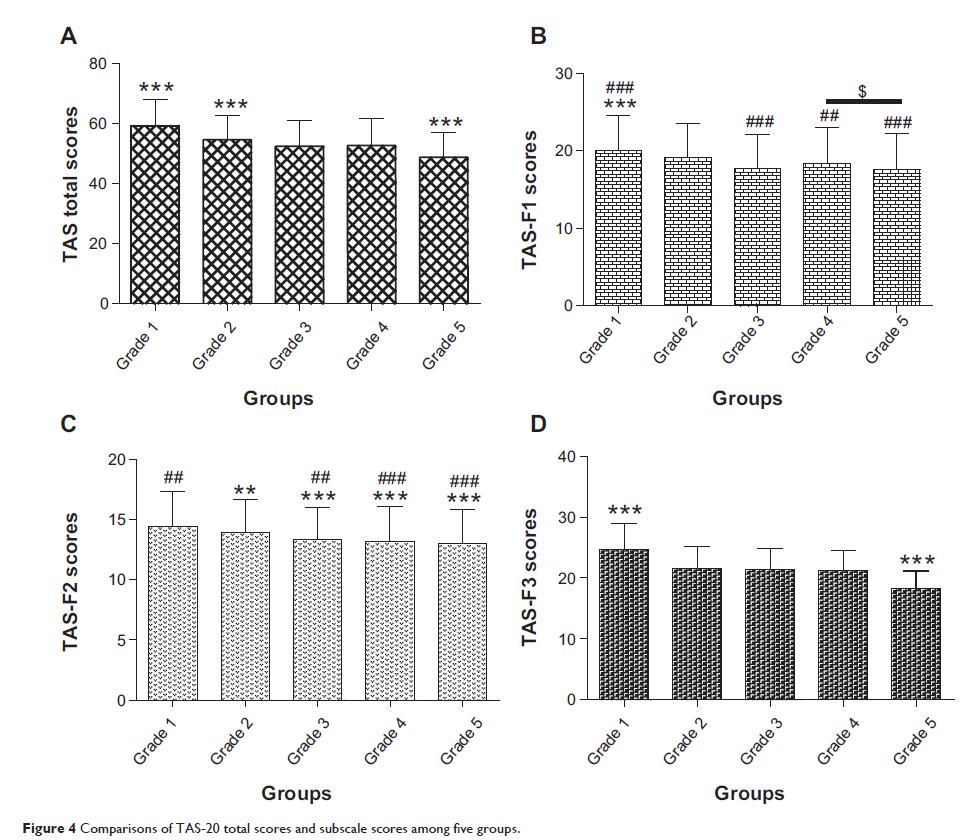108605
论文已发表
注册即可获取德孚的最新动态
IF 收录期刊
- 3.4 Breast Cancer (Dove Med Press)
- 3.2 Clin Epidemiol
- 2.6 Cancer Manag Res
- 2.9 Infect Drug Resist
- 3.7 Clin Interv Aging
- 5.1 Drug Des Dev Ther
- 3.1 Int J Chronic Obstr
- 6.6 Int J Nanomed
- 2.6 Int J Women's Health
- 2.9 Neuropsych Dis Treat
- 2.8 OncoTargets Ther
- 2.0 Patient Prefer Adher
- 2.2 Ther Clin Risk Manag
- 2.5 J Pain Res
- 3.0 Diabet Metab Synd Ob
- 3.2 Psychol Res Behav Ma
- 3.4 Nat Sci Sleep
- 1.8 Pharmgenomics Pers Med
- 2.0 Risk Manag Healthc Policy
- 4.1 J Inflamm Res
- 2.0 Int J Gen Med
- 3.4 J Hepatocell Carcinoma
- 3.0 J Asthma Allergy
- 2.2 Clin Cosmet Investig Dermatol
- 2.4 J Multidiscip Healthc

已发表论文
在医护学生中,对健康焦虑及其相关因素的调查
Authors Zhang Y, Zhao Y, Mao S, Li G, Yuan Y
Published Date July 2014 Volume 2014:10 Pages 1223—1234
DOI http://dx.doi.org/10.2147/NDT.S61568
Received 29 January 2014, Accepted 10 April 2014, Published 7 July 2014
Objective: To explore health anxiety in a sample of nursing students to determine the relationships between health anxiety and life satisfaction, personality, and alexithymia.
Methods: Two thousand and eighty-six nursing students in junior college, which were divided into five groups, were evaluated by questionnaires, including the Life Satisfaction Scales Applicable to College Students, the Chinese version of the Short Health Anxiety Inventory, the Toronto Alexithymia Scale (TAS-20), and the Eysenck Personality Questionnaire.
Results: The mean age, whether the individual was an only child, residence (urban or rural), and were significantly different between the groups. The self-assessment scores were also significantly different between the groups. The Short Health Anxiety Inventory total score and the factor of fearing the likelihood of becoming ill were significantly negatively correlated with the Life Satisfaction Scales Applicable to College Students total score and its two factors, but were significantly positively correlated with psychoticism, neuroticism, and TAS-20 total scores and its scores of the three TAS-20 factors. The negative consequence scale of Short Health Anxiety Inventory was not significantly correlated with externally oriented thinking, but was significantly negatively correlated with extraversion. A hierarchical multiple regression analysis indicted that objective satisfaction, subjective satisfaction, neuroticism, and the three factors of TAS-20 were predictors of health anxiety.
Conclusion: Health anxiety was correlated with life satisfaction, personality, and alexithymia in junior college nursing students. Subjective and objective satisfaction, neuroticism, and the identification and expression of emotions may be predictors of health anxiety in nursing students.
Keywords: life satisfaction, personality, alexithymia
Methods: Two thousand and eighty-six nursing students in junior college, which were divided into five groups, were evaluated by questionnaires, including the Life Satisfaction Scales Applicable to College Students, the Chinese version of the Short Health Anxiety Inventory, the Toronto Alexithymia Scale (TAS-20), and the Eysenck Personality Questionnaire.
Results: The mean age, whether the individual was an only child, residence (urban or rural), and were significantly different between the groups. The self-assessment scores were also significantly different between the groups. The Short Health Anxiety Inventory total score and the factor of fearing the likelihood of becoming ill were significantly negatively correlated with the Life Satisfaction Scales Applicable to College Students total score and its two factors, but were significantly positively correlated with psychoticism, neuroticism, and TAS-20 total scores and its scores of the three TAS-20 factors. The negative consequence scale of Short Health Anxiety Inventory was not significantly correlated with externally oriented thinking, but was significantly negatively correlated with extraversion. A hierarchical multiple regression analysis indicted that objective satisfaction, subjective satisfaction, neuroticism, and the three factors of TAS-20 were predictors of health anxiety.
Conclusion: Health anxiety was correlated with life satisfaction, personality, and alexithymia in junior college nursing students. Subjective and objective satisfaction, neuroticism, and the identification and expression of emotions may be predictors of health anxiety in nursing students.
Keywords: life satisfaction, personality, alexithymia
